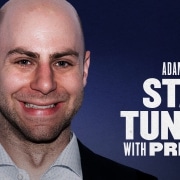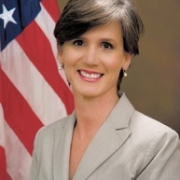Ethics Pays in Business, as in Politics
 People often say they want a strong leader more than an ethical leader. Research by our collaborator Dave Mayer shows that people often fear that an ethical leader will be too nice, and will miss opportunities to advance the company while being reproachful toward less ethical employees.
People often say they want a strong leader more than an ethical leader. Research by our collaborator Dave Mayer shows that people often fear that an ethical leader will be too nice, and will miss opportunities to advance the company while being reproachful toward less ethical employees.
David Brooks has a lovely essay in The New York Times (published 4/28) demonstrating why this thinking is wrong for political leaders. But the quotes from the article below shows that the argument works just as well for business leaders as it does for politicians. I’ve swapped in the relevant words [in brackets], in the section below:
Voting for [Working for] someone with bad private morals is like setting off on a battleship with awesome guns and a rotting hull. There’s a good chance you’re going to sink before the voyage is over.
People who are dishonest, unkind and inconsiderate have trouble attracting and retaining good people to their team. They tend to have sleazy friends. They may be personally canny, but they are almost always surrounded by sycophants and second-raters who kick up scandal and undermine the leader’s effectiveness. Leaders who lack humility are fragile. Their pride is bloated and sensitive. People are never treating them as respectfully as they think they deserve. They become consumed with resentments. They treat politics [business] as battle, armor up and wall themselves off to information and feedback.
It is a paradox of politics [business] that the people who set out obsessively to succeed in it usually end up sabotaging themselves. They treat each relationship as a transaction and don’t generate loyalty. They lose any honest internal voice. After a while they can’t accurately perceive themselves or their situation. Sooner or later their Watergate [Enron] will come.
Maybe once upon a time there was an environment in which ruthless Machiavellians had room to work their dark arts, but we don’t live in Renaissance Italy. We live in a world of universal media attention. Once there is a hint of scandal of any kind, the political [business and social media] world goes into maximum frenzy and everything stops. We live in a world in which power [and opportunity] is dispersed. You can’t intimidate people by chopping your enemies to bits in the town square. Even the presidency [C-suite] isn’t a powerful enough office to allow a leader to rule by fear. You have to build coalitions by appealing to people’s self-interest and by luring them voluntarily to your side.
Modern politics [business], like private morality, is about building trust and enduring personal relationships. That means being fair, empathetic, honest and trustworthy. If you stink at establishing trust, you stink at politics [business]. People with good private morality are better at navigating for the long term.
Ethical Systems Design must start from the top, with a leader who understands what Brooks is saying. See our Leadership page for more advice — backed by research — on how ethical leaders can spread ethics, trust, and engagement throughout their organizations.









